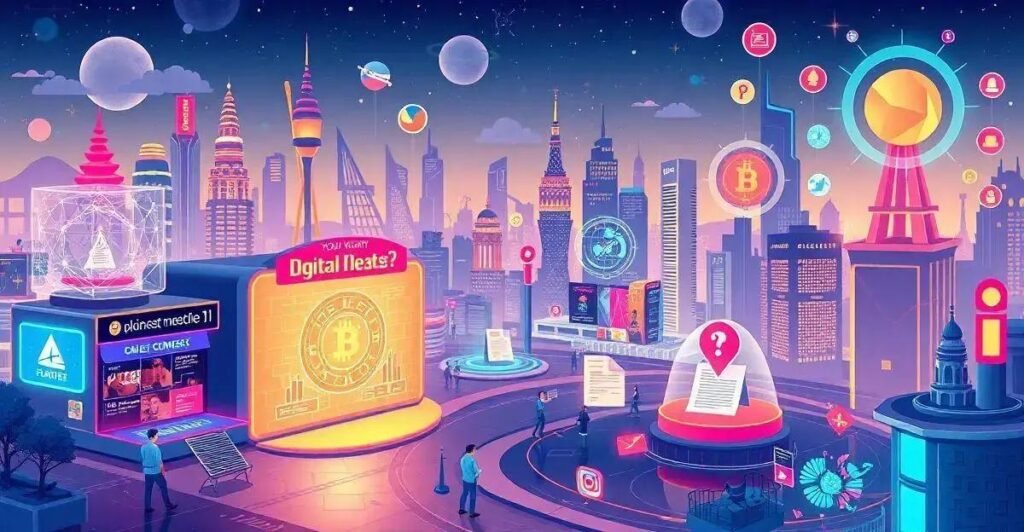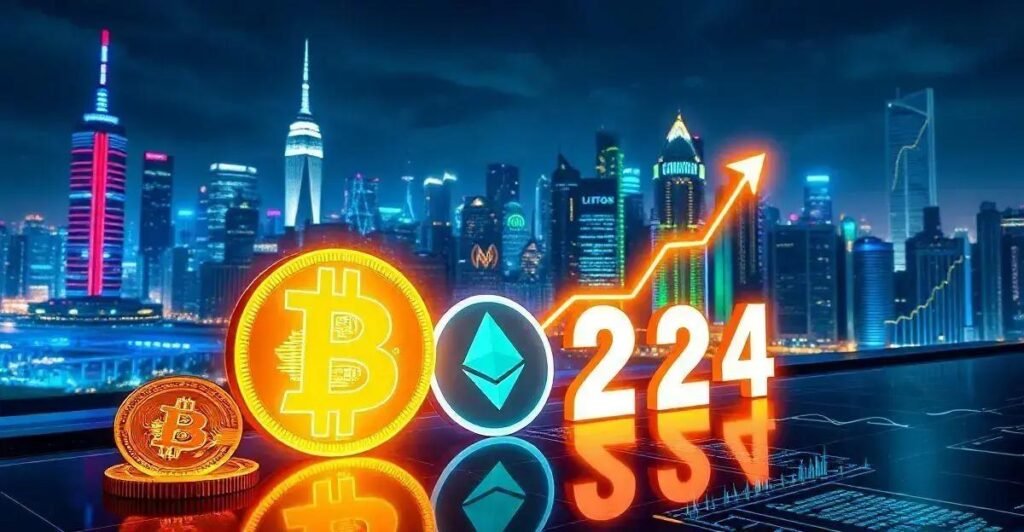NFT utility cases 2024 are at the forefront of digital innovation, transforming how we view ownership and engagement in virtual spaces.
As industries adapt and evolve, the roles of NFTs are becoming more prominent, leading to unique applications across sectors.
In this article, we will examine various NFT utility cases, their practical implementations, and the exciting opportunities they present for businesses and creators alike.
What are NFT Utility Cases?
NFT utility cases refer to the various applications of non-fungible tokens in different sectors. These cases highlight how NFTs can be used beyond mere collectibles to offer real value.
For instance, artists use NFT utility to sell digital work while retaining copyright or royalties. In gaming, NFTs can represent unique in-game items that players truly own, fostering a sense of ownership and investment.
Real estate is also exploring NFT utility
allowing property transactions to be tokenized for transparency and ease. Each case showcases the potential of NFTs to enhance user experience and engagement.
Best NFT Utility Examples in 2024

Some of the best NFT utility examples in 2024 showcase innovative applications across various industries.
In the gaming sector, play-to-earn models are becoming popular. Players can earn NFTs through their in-game progress, giving them real ownership of assets.
Art is another area with significant utility; platforms allow artists to sell their work as NFTs while still preserving resale royalties, thus incentivizing them.
Music NFTs are also on the rise, where artists provide exclusive content or concert access to their NFT holders.
Furthermore, many brands utilize NFTs for promotional purposes, offering fans unique experiences. Brands like Nike and Adidas have created NFTs for limited edition merchandise. This strategy enhances customer loyalty and engagement, giving collectors real value.
The real estate sector is also exploring NFTs to streamline transactions and provide clearer property ownership records through tokenization.
How NFTs Enhance Business Strategies
Understanding how NFTs enhance business strategies is essential in today’s digital landscape. Companies leverage NFTs to create unique digital assets that can boost customer engagement and loyalty. By offering exclusive NFTs, businesses can reward customers, providing them with a sense of ownership and connection. This is especially useful in the gaming industry, where players feel invested in the game when they own unique items.
Furthermore, NFTs can streamline processes through smart contracts, automating transactions and reducing the need for intermediaries. This innovation leads to cost savings and faster transactions. For instance, real estate companies utilize NFTs for property sales, ensuring transparency and efficiency while safeguarding ownership rights.
Moreover, brands can enhance their marketing strategies by using NFTs for promotional events. Exclusive NFT drops or collaborations with artists can create buzz, attracting new customers and engaging existing ones.
Future Trends of NFTs and Utility

The future trends of NFTs and utility are set to reshape various sectors, evolving far beyond art and collectibles. As technology progresses, we can expect more industries to adopt NFTs for enhanced utility. One trend includes the use of NFTs in gaming, where players can trade and own unique in-game assets, adding value to their gaming experience.
Another key trend is in the real estate market, where NFTs facilitate property transactions, ensuring transparency and security. With blockchain technology, ownership can be verified instantly, streamlining sales processes.
Furthermore, brands are beginning to realize the potential of NFT loyalty programs. Customers holding NFTs from a brand may receive exclusive discounts or access to members-only events, fostering brand loyalty.
As we move forward, sustainability will play a vital role in the development of NFTs. Eco-friendly blockchain solutions may emerge, promoting a greener approach to digital asset ownership.
Legal Considerations for NFT Utilities
When considering legal considerations for NFT utilities, it is essential to understand copyright laws and intellectual property rights. NFT creators must ensure they have the rights to the content they are tokenizing. This includes music, art, and digital representations. Improper use can lead to legal disputes and undermine the value of the NFT.
Another critical aspect is the regulatory compliance surrounding cryptocurrencies and tokens. Different jurisdictions have varying regulations that may affect how NFTs are bought, sold, and taxed. Companies must stay informed and comply with local laws to avoid potential penalties.
Additionally, consumer protection laws may apply to NFT sales. Buyers should be informed about what rights they possess when acquiring an NFT, including resale rights. Transparency in transactions is vital to maintain trust and integrity in the NFT market.
Lastly, as the NFT ecosystem evolves, ongoing discussions about environmental impact and sustainability are crucial. NFT platforms are exploring greener blockchain technologies to reduce energy consumption associated with minting and trading NFTs.
Exploring the Impact of NFTs on Art and Culture

Exploring the impact of NFTs on art and culture reveals how digital assets are changing the creative landscape. Artists are now able to tokenize their work as NFTs, granting them greater control over their creations. This allows them to receive royalties on secondary sales, fostering a sustainable income.
Moreover, NFTs have opened new avenues for artists to gain visibility and connect with audiences worldwide. Through platforms that support NFT sales, artists can share their work more widely than ever. This leads to a democratization of the art world, where emerging artists can compete alongside established creators.
NFTs also encourage cultural preservation. Digital art, performances, and other cultural artifacts can be minted as NFTs, providing a permanent record of cultural expressions. This is especially relevant in a digital age where traditional forms may be overlooked.
Additionally, the rise of virtual galleries and exhibitions showcases how NFTs are integrating into mainstream art. Events can be held in virtual spaces, promoting interactions that transcend geographical barriers.
FAQ – Frequently Asked Questions about NFT Utilities
What are NFT utility cases?
NFT utility cases refer to the various applications of non-fungible tokens across different sectors, enhancing user engagement and ownership.
What are the best NFT utility examples in 2024?
In 2024, top NFT utility examples include gaming assets, music rights, and brand loyalty programs offering exclusive content.
How do NFTs enhance business strategies?
NFTs enhance business strategies by creating unique digital assets, automating transactions, and fostering customer loyalty.
What are the future trends of NFTs and utility?
Future trends include more industries adopting NFTs, eco-friendly blockchain solutions, and innovative loyalty programs for customers.
What legal considerations should be taken into account for NFT utilities?
Legal considerations include copyright laws, regulatory compliance, transparency in transactions, and environmental impact concerns.
How do NFTs impact art and culture?
NFTs provide artists greater control over their work, create new revenue streams, and promote cultural preservation through digital assets.



